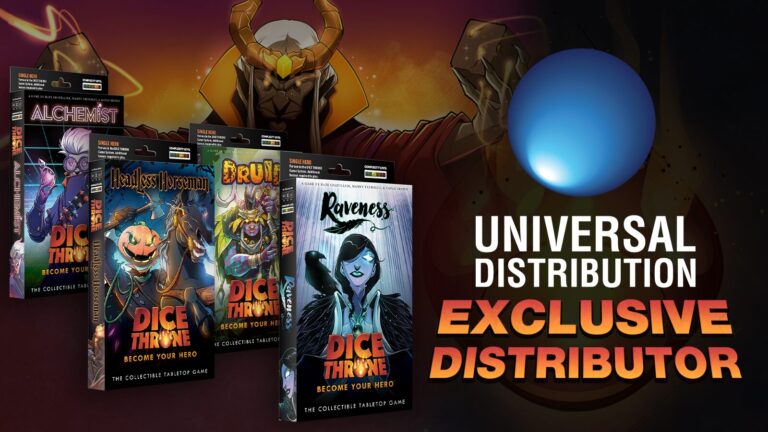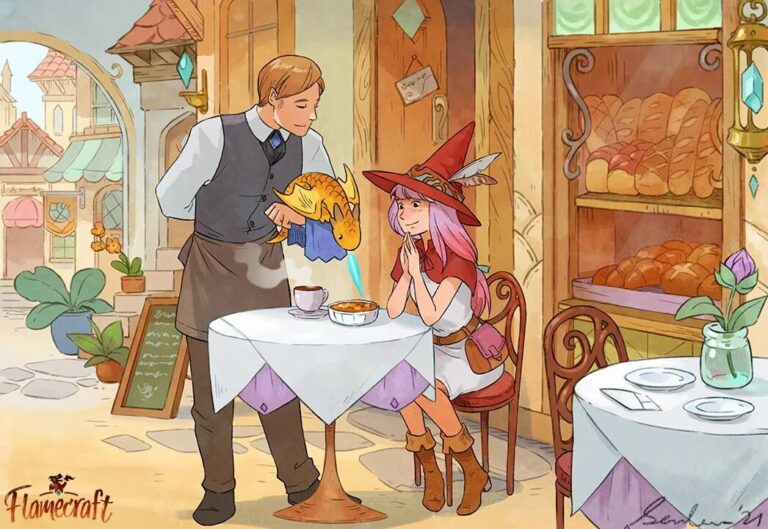
FTC warns board game content creators, publishers over failing to properly disclose relationships, free games
Board game reviewers and influencers are falling foul of FTC rules prohibiting ‘unfair or deceptive’ acts by failing to properly disclose when they receive free games – putting themselves and publishers in the firing line for court action.
The US Federal Trade Commission, the government agency in charge of consumer protection, has just updated its 14-year-old guidance on ‘endorsements and testimonials in advertising’ to include online influencers working across social media platforms like Twitter, Twitch, Instagram and TikTok.
The new guidance makes it clear reviewers and other media creators should clearly disclose when they receive free products or other perks from a company, even if they aren’t specifically asked to mention those products.
That includes a content creator posting a picture of a board game on social media, or a video of someone using the game, which the FTC says “could convey – even without words – that you like and approve of the product”.
The FTC says disclosures should be kept simple, such as “This is an ad for BRAND”, and should be prominent on each piece of media which contains that product.
It said a single disclosure on a home page is not sufficient, nor are single disclosures in the description of videos rather than the video itself, or on social media where a user has to click ‘read more’ to view the disclosure.
The FTC added that multiple disclosures through a video or live stream are preferable, and that pictures on platforms such as Snapchat and Instagram Stories should feature a disclosure superimposed over the image.
Disclosures are not limited to free games, but also cover cash payments, other gifts, and travel and accommodation costs.
An FTC spokesperson told BoardGameWire, “The FTC Act and the principles underlying the Endorsement Guides apply to game companies and game influencers.
“If some followers of game influencers don’t expect them to get the games for free and if knowing about the free games would affect the credibility that followers give to the endorsements, then the free games should be disclosed.
“We have brought cases against companies whose influencers have not disclosed material connections.”
Rob Freund, a digital marketing and e-commerce lawyer for brands, agencies and creators, took to Twitter to discuss the new FTC guidance.
He said, “The FTC could sue the brand, the influencer, and any involved intermediary to enforce violations of the FTC Act related to these guidelines. They have done so many times before.”
He added, “Regulators can’t be everywhere at once, but expect more aggressive enforcement around these issues.”
One former board game influencer who now works for a publisher, who did not wish to be named, told BoardGameWire, “The FTC requirements have been that review copies should be disclosed for a long while… and the hobby industry, especially creators, have definitely ignored that.
“Some do the correct thing. Some don’t. I’ll point out the change and requirements in the interactions I or my companies have with influencers.”
Jamey Stegmaier, the co-founder of Wingspan and Scythe publisher Stonemaier Games, maintains a list of more than 300 board game reviewers who he periodically contacts about review copies.
He said, “I’ve noticed more creators in Instagram tagging their content as ‘paid promotion from the publisher’ for games we’ve sent to them.
“I’d like to see Instagram offer more accurate tags/labels, as there is a literal difference between getting a cardboard box and receiving money to express an opinion, but it will do for now.
“Up until now I’ve put the impetus on reviewers to be transparent about receiving free review copies, but this is a good reminder and opportunity to take some of the responsibility ourselves.
“So I’ve added a paragraph about this on our reviewer guidelines and in the template I use when I contact reviewers each month.”
Sarah Shah, an attorney and the creator and host of the Board Games in a Minute YouTube channel, told BoardGameWire, “I know that I have failed to disclose in Instagram and Facebook posts when I have received a review copy of a game when posting about that game, but going forward, I am going to start doing this more diligently.
“I’ve already been disclosing in video content when I have received a review copy of a game. As for other content creators, I see many who do not disclose even when they are paid to create a video about a certain game, which I feel is deceptive, as it’s giving the impression that their opinion is entirely free from bias.
“I hope more content creators will be mindful of these new laws and follow them more carefully. I know I will.”







Yeah I guarantee you Stonemaier does not have a list of 300 reviewers that he sends review copies to. He has his “friends” group that he sends games too which is probably about 25 at most, and it’s mostly either big names or small folk who he knows praise everything he puts out without any criticisms. This is why you won’t see a negative review for anyone who’s received a Stonemaier free copy of a game because he’s already black listed those who have done negative reviews in the past.
Patrick, that is simply not true. I am not a ‘friend’ of Jamey’s and I have received review copies of games from him. I recently reviewed Pendulum and didn’t really like it but I am still on the list of reviewers and receive regular offers to review more games. Jamey shares all reviews, but says he does not read them. I can’t speak to that but my review is shared on the Pendulum homepage on his site. You can find it at this link down the bottom of the list.
https://stonemaiergames.com/games/pendulum/media/
lmao ^ This is totally not Jamey posting as someone else
The “Ever Stonemaier hater” comes out of the woodwork-hilarious but old and musty by now. Get over it or go see a therapist.
[…] to us from Boardgamewire it seems that board game content creators are coming under the watchful eye of the Federal Trade […]
[…] FTC warns board game content creators, publishers over failing to properly disclose relationships, f… […]
[…] than you think. Free goods, such as a key for your game, qualifies as a material connection. The FTC recently warned board game publishers and content creators that they should be disclosing their relationships with publishers over free games given by the […]
I’m glad to see the FTC is taking action against those who are not properly disclosing their relationships with game content creators and publishers. This is something that needs to be done in order to ensure that consumers are getting the best possible products.
[…] year the FTC updated its 14-year-old guidance on ‘endorsements and testimonials in advertising’ to accommodat…, and included a long Q&A attempting to clarify specific situations which may occur for content […]